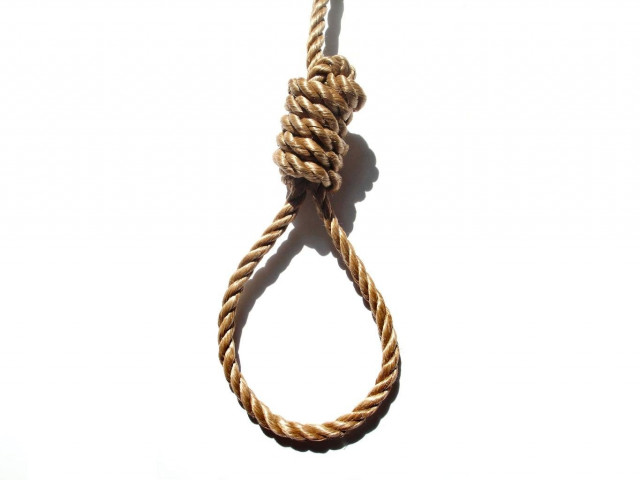On death row
Pakistan remains on the dwindling list of countries, which still retain death penalty for a wide range of offences.

The death penalty is an issue that needs to be discussed in depth. PHOTO: FILE
The phraseology is interesting. The question we should ask is if there is any “merit” at all in the manner cases are decided and trials held. We all know that in our criminal justice system, the chances of a miscarriage of justice taking place are huge — both due to the inadequacies of police investigations and the factors involved in the trial itself. Most of those sentenced to death are poor — unable to hire savvy lawyers or take advantage of the country’s controversial Qisas and Diyat law, as the rich so often do.
The risk posed to over 8,000 people currently on death row by the latest decision has been pointed to by the London-based rights group Amnesty International, which has expressed grave concern and sought an extension of the moratorium on capital punishment. This does not seem likely to happen; the statement from the interior ministry on the matter seems unequivocal.
The death penalty issue is one we need to discuss in depth. Pakistan remains on the dwindling list of countries, which still retain the death penalty for a wide range of offences.The inhumanity of capital punishment, notably in a system where justice is inaccessible to many and “errors” very likely, is something we cannot afford to ignore.
The decision to end the moratorium needs to be re-considered and a debate generated on the criminal justice system, the main feature of which should be reform rather than retribution. At present, we are a long way away from this ideal.
Published in The Express Tribune, July 6th, 2013.
Like Opinion & Editorial on Facebook, follow @ETOpEd on Twitter to receive all updates on all our daily pieces.















COMMENTS
Comments are moderated and generally will be posted if they are on-topic and not abusive.
For more information, please see our Comments FAQ